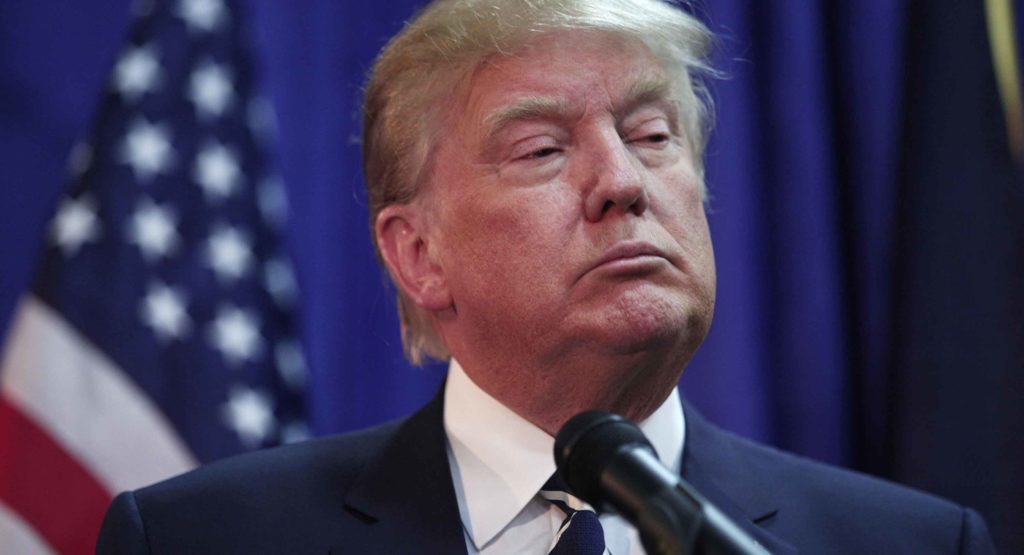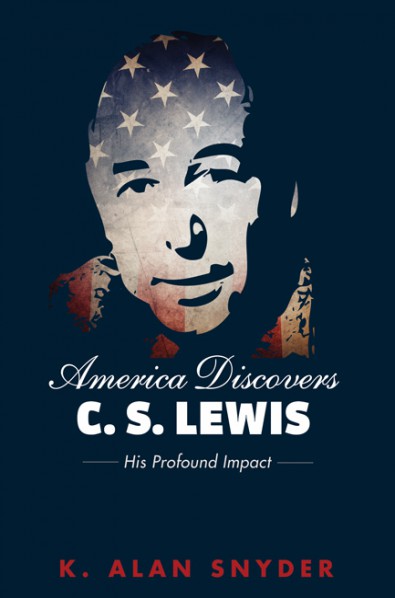When I was 25, I pretty much knew everything. If you didn’t think so, all you had to do was ask me. Theology, for instance, was all figured out. No need to revisit that. Yet, in the years that followed, I came to the realization that I had a lot to learn.
Let me offer a few examples of the rethinking I have had to do.
As a young and budding historian, beginning my studies toward a doctorate, I came into the academic world rather convinced that the South had a good argument for seceding from the Union in the Civil War. The nation was created by the states, I reasoned, and they could leave anytime they chose. Now, I wasn’t enamored of the South’s defense of slavery, of course, but I felt that region had a solid constitutional basis for secession.
But my studies forced me to confront arguments that I hadn’t considered, and that weren’t offered, in the reading I had done previously. I began to see things differently, and particularly became more alert to biases that might exist in the authors I had trusted. Deeper research and a better constitutional understanding led me eventually to reject my former viewpoint, as the original documents showed my errors in thinking about how the Constitution was formed. And then when I read the secession declarations of the various states that pulled out, it was obvious that any arguments advanced on a states’ rights basis were always in the context of protecting slavery. States’ rights was mostly a fig leaf for ensuring the preservation of the institution of slavery.
I also had to reconsider my understanding of Lincoln. I had been interpreting his actions as that of a dictator. Further research into the heart and mind of the man forced me to change that perception completely.
Another belief—or burgeoning belief—that I had to confront was a kind of infatuation with libertarian philosophy. As a conservative who believes in limited government, the free market, private property, and freedom of choice for education, I was attracted to a number of libertarian-leaning writers. I began to wonder if I could move in that direction.
So, in the mid-1990s, while teaching in a graduate school program, I ventured up to Washington, DC, one weekend to attend a libertarian conference. There was much to like about it, especially when dealing with the issues I noted above, but I also picked up on one disturbing feature: disdain for any belief in absolute moral standards and rejection of Christian faith specifically by many at the conference. Regardless, I invited one of the leaders of the conference to come speak to one of my classes and present the libertarian philosophy. He came, and the presentation coupled with the questions and answers that flowed from the talk, finally convinced me that I could not be a libertarian.
This did not change my belief in limited government, the free market, or choice in education, but I had to conclude that libertarianism was a step too far toward a possible anarchism. That did not square with my Christian faith.
A third rethinking was more personal. At one point earlier in my life before my first teaching position at a university, I began to question the basis of my faith. I wish I could say that this particular rethinking was an honest one. In retrospect, though, I have to admit it was the result of a rebellious spirit and supreme selfishness. Maybe I shouldn’t trust the Bible. Perhaps God doesn’t really have absolute moral standards. I struggled with that for a few years until the Lord brought me back to Himself, but until that occurred, I threw myself into the academic world as if it had all the answers for life, as if I could find ultimate meaning in scholarship.
Finally, near the end of my doctoral studies, I came across a passage in the 12th chapter of Ecclesiastes that helped pull me out of my spiritual desert:
The words of the wise are like goads, and the anthologies of the masters are like firmly embedded nails driven by a single Shepherd. And by these, my son, be further warned: There is no end to the making of many books, and much study wearies the body.
When all has been heard, the conclusion of the matter is this: Fear God and keep His commandments, because this is the whole duty of man. For God will bring every deed into judgment, along with every hidden thing, whether good or evil.
God’s Spirit spoke to me through that Scripture. Gradually, I came to realize that I had forsaken the only spring of living water and the only real meaning in life. The proper response was repentance, which is the only route to forgiveness.
While I wish I could have skipped this part of my life, I know now that it forced me to rethink all my theological sureties. Here’s what happened: I didn’t really change the basic beliefs I had held previously, but I now had a deeper appreciation for God’s heart and His willingness to salvage lives that are bent on personal destruction. I returned to Him with a depth of gratitude that I never had before.
So sometimes the rethinking doesn’t mean that you have to make a 180-degree turn from what you thought prior to the rethinking. Sometimes it just means you get a new perspective, valuable in itself.
We should never run away from the challenge of rethinking.
I have one more example, and it’s one that shouldn’t be a surprise to anyone who has read my ponderings over the past several years. Some of you might not want to hear this again, but I urge you to read and be open to rethinking.
When I spoke to a Republican club back in 2012, at the end of the meeting during a question-and-answer time, one woman wanted to know what I thought of the possibility of nominating Donald Trump as the Republican candidate. She obviously was enthusiastic about that herself. I could hardly believe what I was hearing. I practically laughed about the suggestion and dismissed that as something out of left field. After all, I knew something of his tawdry personal life and shady aspects of his businesses; Republicans surely wouldn’t want to tarnish their moral brand with such a nominee.
Oh, how naive I was.
From the time Trump came down his golden escalator in 2015 to announce his candidacy, I resolutely opposed the idea. That much most of you already know because I’ve continued to oppose Trump and the Trumpism that has emerged and infected our politics.
So where does the rethinking come in? It has to do with many whom I always considered to be principled conservatives and/or stalwart Republicans who believed in principles and the importance of character in public officials. As more and more conservatives/Republicans either jumped enthusiastically on the Trump bandwagon or simply remained silent to ensure they wouldn’t suffer the loss of their privileged positions in Congress or within the party structure, my amazement grew.
In 2016, I supported Ted Cruz because I thought he was a principled constitutionalist. Now I see it was all a show. When the “base” no longer cared about principles and the Constitution, but only in having someone to “fight for us,” he quickly did a slick turnabout as a devoted follower of Trump. When January 6 occurred, I thought perhaps that would be the wakeup call. Again, supreme disappointment.
So my rethinking has been this: I was far too trusting in politicians’ words and their promises; I no longer could believe that the Republican party was the party of the Constitution and principles. Even though I disagree with Democrats on nearly everything—especially abortion and sexual mores—I have an equal disagreement with Republicans due to their dismissal of moral character, their grasping for political power at whatever cost, and, yes, their abject cowardice. That cowardice is exhibited by fear of being on the wrong side of a self-obsessed, conspiracy-mongering, serial liar. If that is the kind of person they choose to honor, I refuse to align with them.
I will never vote for anyone who aids and abets the fantasy of a stolen election or who minimizes the mob action against Congress that was directed and incited by Donald Trump. It was a direct attack on our constitutional form of government and a real attempt at overturning an election for the sake of continued political power.
This is why I am no longer a Republican. My official political designation is “No Party Affiliation.”
Yet, the Lord has come to my rescue. When I was granted a sabbatical in 2014-2015, I thought the greatest result of that time would be a book on spiritual advisors to presidents. I used my time wisely, going to six presidential libraries and amassing a mountain of information on that subject. But no book was forthcoming. Here’s what happened instead.
While I was doing research at the Billy Graham Center at Wheaton College, I also took the opportunity to go to the Marion E. Wade Center, as an aside, just to see if there might be anything I could contribute to C. S. Lewis scholarship. That little side trip, so to speak, is what developed into the most meaningful result of the sabbatical, as I was able to publish my book on Lewis.
In the process, as the Trump years unfolded, the Lord redirected my efforts away from the political emphasis and has given me a love for writing about and teaching the treasures that Lewis offers for Christians today. This emphasis is uplifting and edifying, both for me personally and, I hope, for those who follow me in this blog. While I still write about the political situation whenever I believe it is necessary, I now know that too much attention to it can become a spiritual cesspool.
So what has God done? He has led me to rethink how I should spend whatever years I have left as one of His ambassadors. My teaching and writing has now been redirected, and I couldn’t be happier.
So, for those of you who actually made it through this entire blog post, I urge you to accept the challenge to do some rethinking. Give God the chance to redirect your thoughts and actions, if necessary, into ways that are more honoring to Him. Don’t allow the political cesspool to pull you down. Make sure your personal swamp is drained.
And give Him all the praise.





